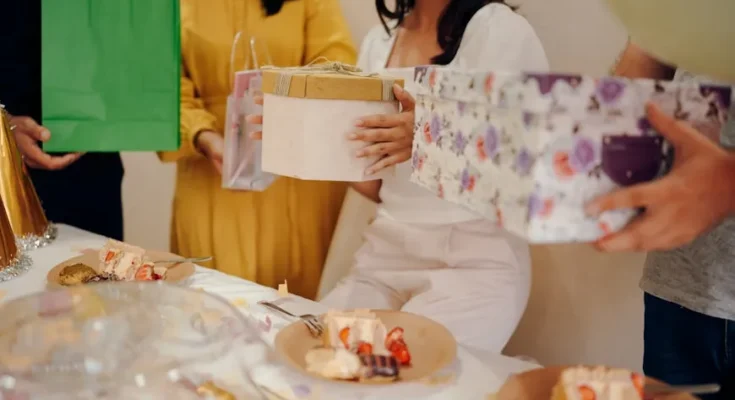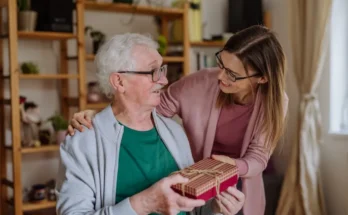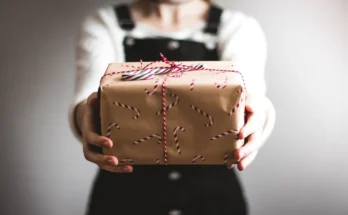The Language of Giving:
Gifts have a way of doing something that words sometimes cannot. They speak directly to the heart. Whether offered on a special occasion or an ordinary day, a gift is a message in physical form. It says, I thought of you. I care about you. I wanted to give you something that reminds you of that.
Giving and receiving gifts has long been a meaningful act that helps people bond, celebrate, and create shared memories. From the simple to the grand, the power of a gift lies not in its price tag but in its intention. In every beautifully wrapped box or handwritten note is a connection waiting to be made or strengthened.
Why Do Gifts Matter on Special Occasions?
- Marking Life’s Milestones with Meaning
Special occasions are milestones in our journey. Birthdays, weddings, graduations, anniversaries, religious holidays and cultural festivals are more than just dates on a calendar. They are emotional landmarks. Gifts offered on these days symbolize love, recognition, and shared happiness.
A birthday gift tells someone that their presence matters. A wedding gift celebrates the merging of lives. A graduation gift acknowledges effort and growth. These tokens become more than items. They become part of the story of the day.
Gifts help us pause in a busy world and say, This moment matters, and so do you.
- A Gesture That Transcends Words
Sometimes emotions are too big or too complex for speech. How do you fully express gratitude to someone who helped you through a hard time? How do you show someone how happy you are for their success?
A well chosen gift becomes that expression. It carries the weight of appreciation, pride, love, or celebration. And because it is a physical object, it can be held and kept, offering a memory that outlasts the moment itself.
The Importance of Gifting on Ordinary Days:
- Making the Everyday Extraordinary
While gifts on special occasions are expected, those given on ordinary days often carry an even deeper surprise. A thoughtful gift for no reason other than affection or appreciation can turn an average day into a treasured memory.
Unexpected gifts break routine and inject joy. They say, I do not need a reason to care about you. These are the kinds of gifts that build stronger relationships, because they are not given out of tradition or duty, but pure intent.
- Building Emotional Bridges
When life gets busy, it is easy to drift away from the people we care about. We mean to call, we forget to text back, and time passes. A small gift on a regular day can rebuild that bridge. It can reestablish warmth where there might have been silence.
Whether it is a book that made you think of a friend or a cup of coffee delivered to a coworker on a stressful day, these acts remind people they are not alone.
Choosing the Right Gift What Should We Give:
- Gifts That Reflect the Person
As noted in a detailed LinkedIn post on the psychology of gift giving (by Jovana Balaban), gift exchanges often trigger a mutual sense of belonging and warmth. The gestures release “helper’s high” endorphins, boosting self-esteem, reducing stress, and deepening emotional bonds.
Gifting is not about giving what you like. It is about giving what they will love. A quiet person might cherish a handwritten journal. An artist may adore quality sketchbooks. A music lover might find deep joy in a playlist made just for them. When the gift matches the soul, it becomes unforgettable.
- Gifts That Create Shared Moments
Some gifts are best enjoyed together. Tickets to a play, a reservation for a dinner experience, or even a cooking class become gifts of time and memory. These types of presents allow you to create new experiences with someone instead of just giving them something to hold.
Shared gifts strengthen bonds. They provide stories to look back on, laughter to remember, and photos to revisit.
- Practical Gifts with Personal Touches
Practical gifts are often overlooked, but they can be among the most appreciated when chosen with care. A well made backpack for someone who commutes. A set of teas for someone who winds down with warm drinks. A toolset for a new homeowner.
Adding a personal touch such as custom engraving or a handwritten note transforms something useful into something meaningful.
Cultural and Emotional Weight of Gift Giving:
- A Tradition as Old as Time
Gift giving is woven into the fabric of human history. Ancient civilizations exchanged offerings to honor the gods. Tribes traded items to build alliances. Kings gave treasures to seal treaties. In every era, the gift has been more than just a token. It has been a way to honor, welcome, and connect.
Today, while the forms of gifts may have changed, the purpose remains the same. Giving connects us across time, space, and difference.
- Emotional Healing Through Giving
Psychologists emphasize that giving is more than sentiment—it’s therapeutic. A study highlighted on Oak Park Talon shows that individuals who spent on others reported significantly higher happiness levels than those spending on themselves—regardless of the amount. This demonstrates how gifts can create emotional connection and well‑being across challenging moments. These acts do more than express sentiment. They actively help repair and nurture relationships.
Giving during these times is not about perfection. It is about presence. It is a way to say, I am here for you, in a quiet but deeply felt way.
Gifts as Legacy:
- The Gifts We Keep Forever
Some gifts become part of who we are. A pendant passed down from a grandparent. A book given by a teacher that inspired a career. A quilt made by a parent. These items do not just sit on a shelf or in a drawer. They carry stories, emotions, and heritage.
Legacy gifts hold meaning not just for the person who receives them, but for future generations who will one day ask, Where did this come from? In that question, the giver lives on.
- Making Gifts That Matter
When choosing a gift, think beyond the moment. What will this mean to them in five years? Ten years? Gifts that matter are not about money. They are about meaning. A single sentence in a letter can outlive the trendiest gadget.
You have the power to create legacy, not through grandeur, but through care.
Conclusion:
At its heart, gift giving is an act of love, attention, and humanity. It reminds us that we are part of something bigger than ourselves. Whether the gift is wrapped in shiny paper or offered with nothing but a smile, its impact depends entirely on the emotion behind it.
So give often, but give thoughtfully. Do not wait for birthdays or holidays. Surprise someone on a regular Wednesday. Offer a small token to brighten a tough week. Celebrate victories. Comfort sadness. And always, always give from the heart.
Because in the end, the best gifts are never about the things. They are about the feeling they leave behind.




